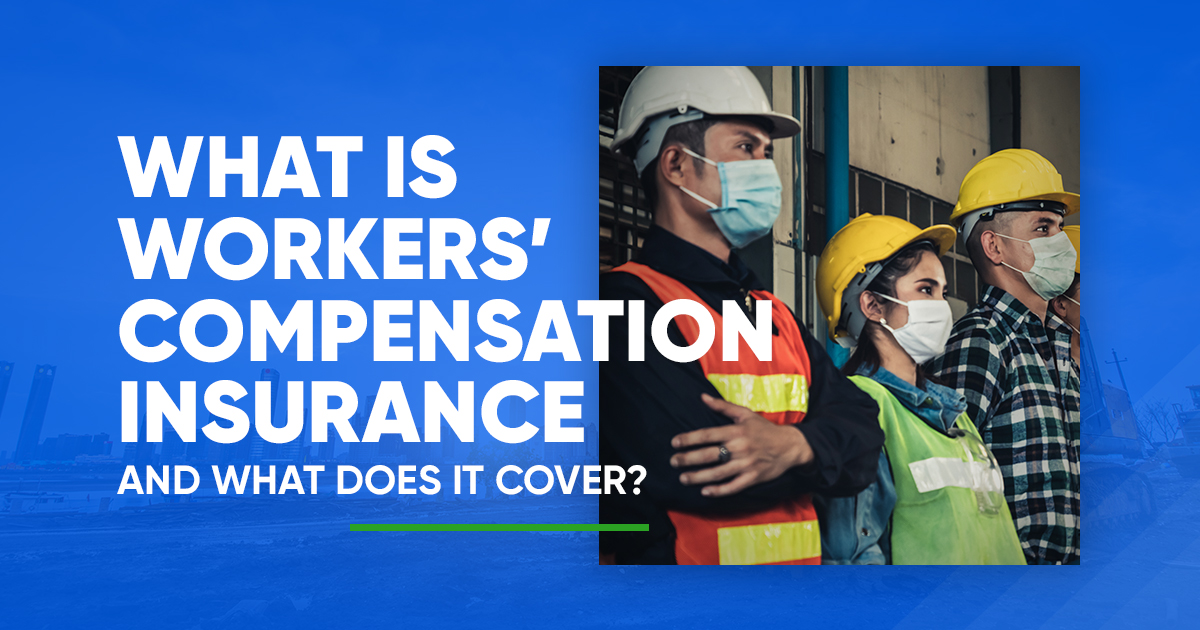Workers Compensation Insurance: The Hidden Safety Net Every Business Needs
Workers Compensation Insurance is one of the most important protections in the workplace. It safeguards both employees and employers by ensuring injured workers receive medical treatment, rehabilitation, and financial support while protecting employers from costly lawsuits. At its heart, this insurance creates a balance. Employees know they will be treated fairly if an accident occurs, and employers can maintain stability without being overwhelmed by unexpected expenses.
When an employee gets hurt at work, the system provides immediate coverage for medical care, therapy, and even partial wage replacement. This quick support helps the employee focus on recovery instead of financial stress, while employers benefit from reduced disputes and predictable insurance costs.
What Workers Compensation Insurance Covers
Medical Expenses
Workers Compensation pays for all reasonable medical needs tied to a workplace injury. This does not just mean emergency room visits. It extends to follow up appointments, surgical procedures, medications, and rehabilitation sessions. For example, if a construction worker suffers a broken leg, the insurance covers hospital treatment, the surgery required to fix the bone, pain medications, and physical therapy until the worker can safely return. Without this coverage, the employee might delay treatment due to cost, leading to longer recovery times.
Lost Wages
When employees cannot work while recovering, Workers Compensation steps in with wage replacement benefits. These payments usually cover a percentage of the worker’s regular salary, which helps maintain financial stability. For instance, if a warehouse employee strains their back and is out of work for six weeks, the policy ensures they still receive consistent income to pay for rent, groceries, and family expenses. While the benefit may not equal their full paycheck, it prevents them from falling into financial hardship.
Rehabilitation and Therapy
Not all injuries heal quickly. Some require extensive physical or occupational therapy. Workers Compensation covers rehabilitation programs designed to restore employees to their original health or prepare them for new work if they cannot return to their old role. For example, a machinist who loses partial hand mobility may need retraining for a different role in the company. This rehabilitation coverage ensures that employees are not left without employment options after a serious accident.
Disability Benefits
In cases where injuries cause long lasting effects, Workers Compensation provides disability benefits. These can be partial, where the employee is still able to work in a limited capacity, or permanent, when they can no longer return to the workforce. For instance, an electrician who suffers permanent nerve damage might qualify for partial disability payments that support them while working reduced hours. In contrast, a worker left completely unable to work after a severe accident would receive permanent disability benefits to ensure long term financial support.
Death Benefits
In tragic cases where an employee dies from a workplace incident, Workers Compensation provides essential financial relief to their family. The coverage typically includes funeral and burial costs, as well as ongoing financial support for dependents. For example, if a factory worker dies in an accident, their spouse and children may receive regular payments to cover living expenses, ensuring the family is not left in financial crisis during a time of grief.
What Workers Compensation Does Not Cover
Although Workers Compensation is comprehensive, there are boundaries. Self inflicted injuries are excluded, meaning employees who intentionally harm themselves cannot claim benefits. Injuries that occur outside of the workplace, such as commuting accidents, are usually not covered unless they fall under specific exceptions. If an employee is intoxicated or under the influence of drugs when injured, the claim will be denied. Similarly, injuries caused by reckless or criminal behavior are excluded. Independent contractors, freelancers, and volunteers are also not automatically covered unless the employer extends the policy to include them.
Why Workers Compensation Insurance Matters
Protecting Employees
For employees, the benefits go far beyond paying medical bills. They gain peace of mind knowing that their financial security will not collapse because of an accident. They are able to access high quality healthcare without worrying about debt, receive steady wage replacement during recovery, and access long term disability benefits if necessary. This creates a culture where employees feel valued and supported, which boosts morale and loyalty.
Protecting Employers
Employers also gain significant advantages. Without Workers Compensation, they could face lawsuits every time a worker is injured. Court battles are costly, time consuming, and unpredictable. Insurance protects them by providing a structured system where claims are managed efficiently. This not only saves money but also protects the reputation of the company. Businesses that prioritize worker safety and compensation are more attractive to skilled employees and customers who value responsible practices.
Encouraging Workplace Safety
Workers Compensation also encourages safer workplaces. Many insurers reward businesses with lower premiums when they maintain strong safety records. Employers are motivated to invest in safer equipment, provide training programs, and carry out regular inspections to prevent accidents. A safer workplace not only reduces insurance costs but also boosts productivity because employees feel secure and confident while performing their duties.
Supporting Business Continuity
When an accident occurs, businesses with coverage can manage the financial fallout quickly. Claims are handled within the insurance system, so companies avoid large one time expenses. This allows operations to continue without major interruptions, keeping production lines moving and services uninterrupted. For small businesses, this stability can mean the difference between survival and closure after a serious workplace injury.
Key Factors Employers Should Consider
State Laws and Requirements
Every state has its own rules on Workers Compensation. Some states require coverage even for businesses with one employee, while others set thresholds for when it becomes mandatory. Employers must carefully review the laws in their state to avoid penalties. Non compliance can lead to fines, lawsuits, and in some cases even criminal charges.
Payroll and Job Classification
Premiums are not calculated randomly. They depend heavily on payroll size and job classification. Jobs with higher risks, such as construction or mining, come with higher premiums compared to office work. Employers need to classify employees accurately, as misclassification can lead to fines and increased costs. Keeping payroll records up to date ensures premiums reflect the actual level of risk.
Coverage Limits
Choosing appropriate coverage limits is critical. If limits are set too low, a business might face uncovered costs during serious accidents. For instance, a manufacturing plant with heavy machinery needs higher limits than a small office environment. Employers must analyze the risks in their industry and ensure their coverage is sufficient for worst case scenarios.
Choosing the Right Provider
Not all insurance providers are equal. Employers should evaluate providers based on their experience in handling claims, responsiveness, and support services. A strong provider can also guide employers on safety practices that reduce accidents and claims. Choosing an insurer with a reliable reputation ensures both employer and employee confidence.
Real Life Examples
A construction worker falling from scaffolding and needing months of recovery demonstrates how Workers Compensation covers hospital stays, rehabilitation, and wage replacement. A warehouse employee suffering a severe back strain highlights how the policy pays for therapy and prevents financial collapse during recovery. In an office setting, a worker with carpal tunnel syndrome benefits from ergonomic adjustments, therapy, and time off covered by insurance. Finally, when a fatal accident occurs, the family of the deceased receives funeral costs and steady financial support to help them rebuild their lives.
Who Needs Workers Compensation Insurance
Every business benefits from Workers Compensation, regardless of size. Small businesses with only one or two employees still face risks, and a single accident can be financially devastating without coverage. Large corporations with thousands of employees face even greater risks due to sheer scale, making insurance essential for long term stability. High risk industries like construction, mining, and manufacturing cannot operate responsibly without strong policies in place. Even service based businesses such as restaurants or offices require coverage because accidents like slips, falls, or repetitive strain injuries happen in all workplaces.
Practical Tips for Employers
Employers can reduce risks and manage insurance costs effectively by taking proactive measures. Regular safety training ensures workers understand protocols and know how to avoid accidents. Keeping accurate payroll and job classification records prevents disputes over premiums. Reporting injuries promptly helps avoid penalties and ensures employees receive quick care. Reviewing coverage annually keeps policies aligned with business growth and new risks. By following these practices, employers create a safer and more cost effective workplace.
Common Misconceptions
Many people assume Workers Compensation only benefits employees, but in truth it also protects employers by shielding them from lawsuits. Another common belief is that office jobs do not need insurance. Yet, injuries such as carpal tunnel syndrome or slip and fall accidents can occur in any workplace. Some assume that health insurance alone is enough, but it does not replace lost wages or cover long term disability. Others think premiums are too expensive, but compared to the financial burden of lawsuits or uncovered medical bills, insurance is a far more affordable option.
Final Thoughts
Workers Compensation Insurance is more than a legal requirement. It is a foundation of workplace trust, safety, and financial security. Employees gain protection for their health and income, while employers avoid unpredictable lawsuits and costly disputes. Beyond financial coverage, it promotes safer work environments and business stability.
Every business, regardless of size or industry, should prioritize Workers Compensation as part of its long term strategy. With the right policy in place, employers can focus on growth while employees work with confidence, knowing they are supported. At the end of the day, Workers Compensation Insurance is not just about compliance. It is about building a workplace culture where people feel valued, protected, and prepared for the unexpected.




